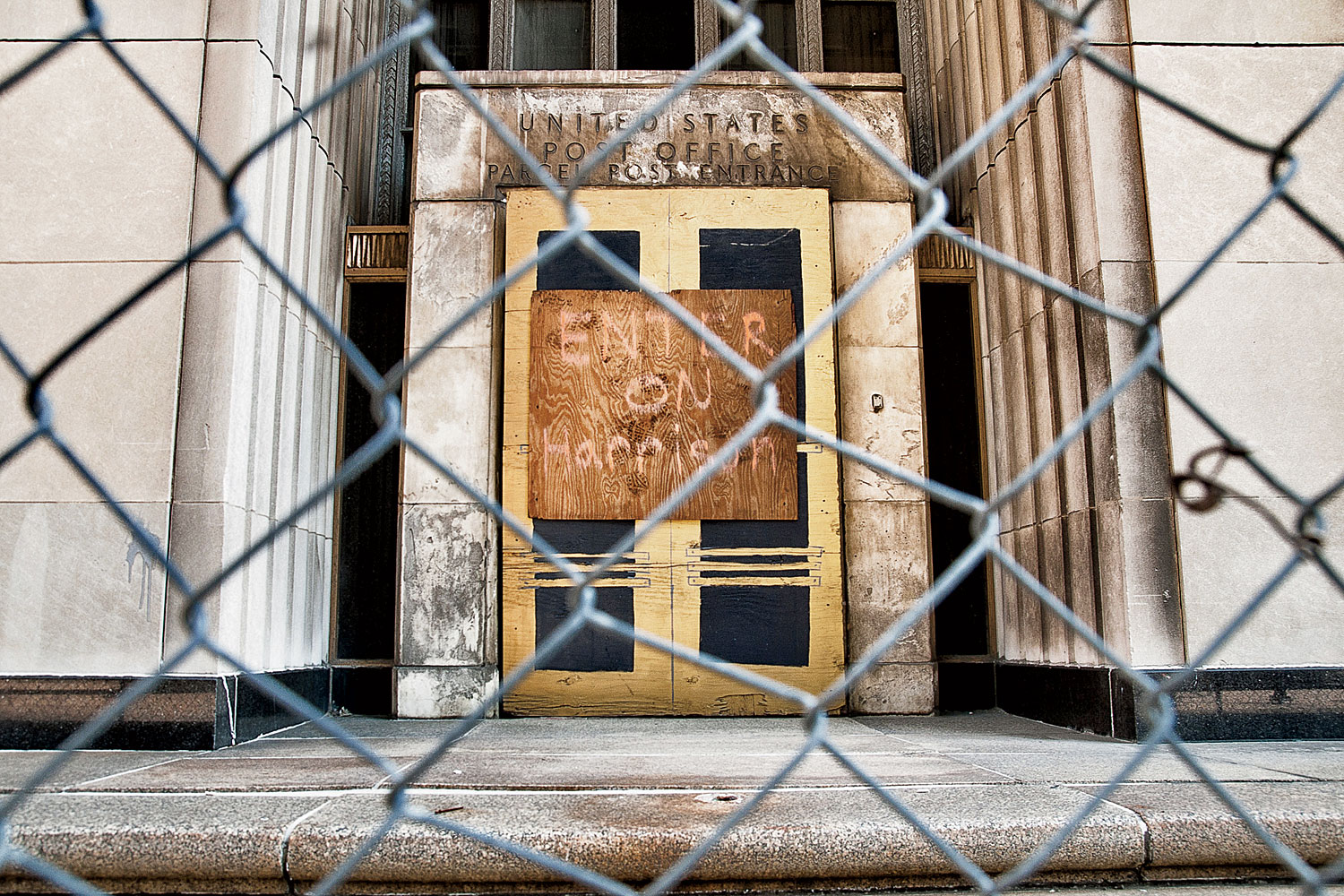Is one empty building really that big a deal?
Yes, when it represents 2.7 million square feet of premium real estate. The art deco leviathan sits on the Chicago River at Van Buren Street, right at the border of the West Loop and South Loop, two neighborhoods exploding with development. With Metra tracks and the Eisenhower Expressway running beneath it and Union Station only two blocks north, it also would make a desirable hub for a high-speed rail system. “Sitting and waiting for something to happen at that building was easier when the economy lacked traction,” says MarySue Barrett, president of the Metropolitan Planning Council. “Sitting and waiting is not acceptable now.”
So why hasn’t anything happened?
After British developer Bill Davies bought the property from the U.S. Postal Service in 2009, he promised to fill it with shops and hotel rooms and surround it with towers for business and residential use. Though Davies’s architect says the developer is actively pursuing tenants, no ground has been broken. (Davies did not respond to requests for comment.)
What’s the story with that guy?
This isn’t the first property Davies, who resides in the tax haven of Monaco, has sat on. He held on to another old post office, this one in Liverpool, for 16 years before selling it unchanged.
Can’t anyone light a fire under him?
Alderman Danny Solis threatened in September to yank zoning if Davies didn’t act soon. But now Solis is backtracking. “Chicago is dealing with important issues like getting its fiscal house in order, and the alderman hasn’t decided to move forward with the downzoning at this time,” wrote Solis spokesman Tim Nazanin in an email to Chicago.
But wouldn’t this development help generate income for the city?
Sure would. “If you did a retail and office development of the existing structure, you would have 13,000 to 14,000 full-time jobs here,” says Andy Gloor, managing principal at the real estate firm Sterling Bay, which owns and develops properties downtown. “The impact would be immediate and really dramatic.”
So what happens next?
Davies is going to have to do at least one thing soon: pay $350,000 in back property taxes or risk eventually losing the site. Martin Mulryan, his project manager, insists that the bill will be settled in April and that preliminary work—demolishing an old mail-sorting facility next door—could start in early 2016. Just don’t expect Davies to be easily intimidated by local politicians. Notes Mulryan: “The equivalent of an alderman in the U.K. doesn’t have as much responsibility or involvement in projects as they do in the U.S.”



